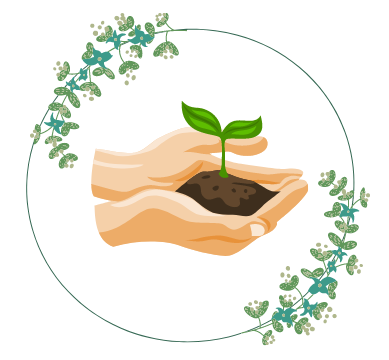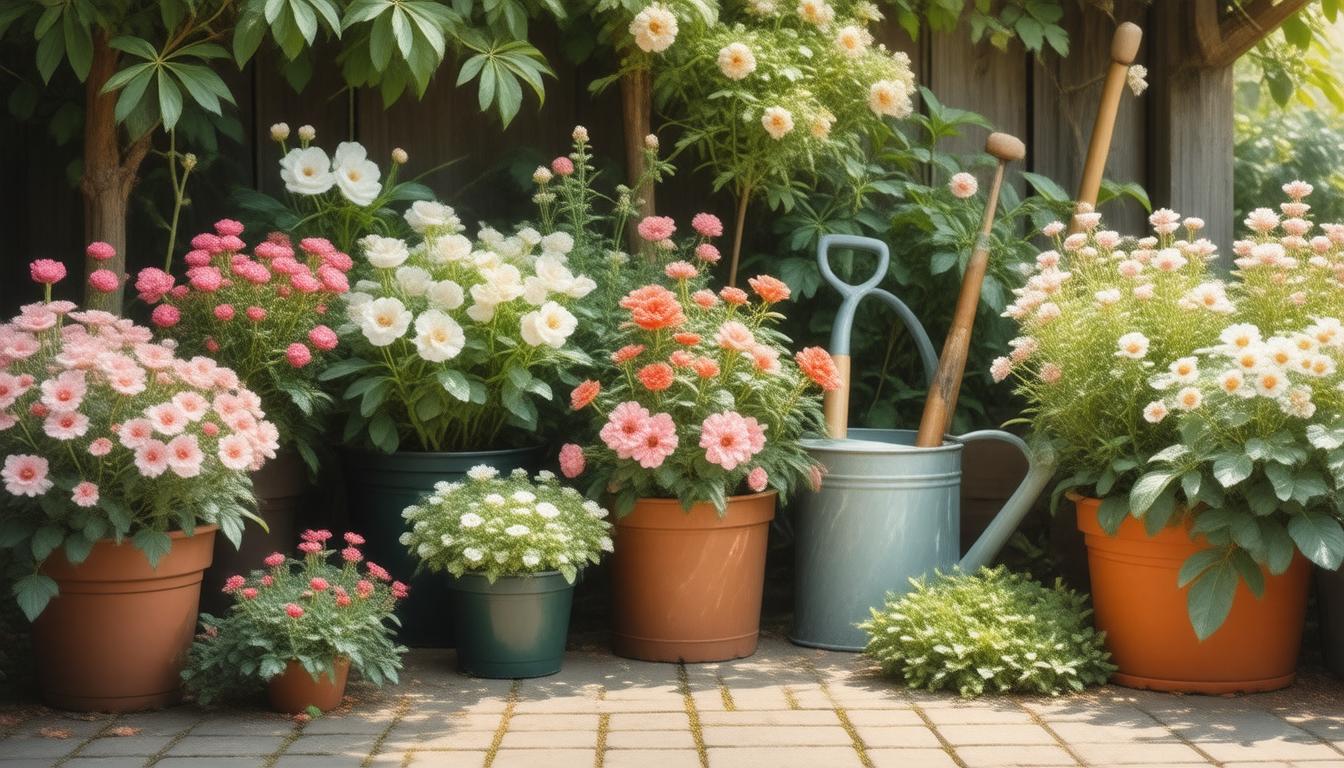If you’re new to gardening and looking for ways to cultivate your very own outdoor sanctuary, you’ve come to the right place! This article presents essential outdoor plant tips for beginners: start your garden right. From selecting the ideal plants for your climate to understanding soil preparation, watering techniques, and pest management, we’ll guide you through the foundational steps to ensure a thriving garden. Whether you’re dreaming of a colorful flower bed, a productive vegetable patch, or a serene herb garden, this guide will equip you with the knowledge you need to embark on your gardening journey with confidence.
Key Takeaways
- Know your hardiness zone to select plants suited for your climate.
- Invest in basic gardening tools to make the process easier and more efficient.
- Start with healthy soil preparation to ensure a thriving garden.
- Employ smart watering techniques to promote optimal growth without waste.
- Utilize natural pest management strategies to protect your plants while maintaining a healthy ecosystem.
Understanding Your Zone: Choosing the Right Plants
When embarking on your gardening journey, understanding your zone is crucial for selecting the right plants. Each zone offers unique climatic conditions, including temperature ranges and frost dates, which significantly impact plant growth. Beginners should consult the USDA Plant Hardiness Zone Map to determine their specific zone and subsequently choose plants that thrive in those conditions. For instance, if you’re in a warmer zone, you might consider vibrant succulents or heat-resistant annuals for your outdoor space. Additionally, consider light exposure, soil type, and moisture availability in your garden as you explore outdoor plant tips for beginners: start your garden right by selecting plants that not only beautify but also flourish in their designated environment.
Essential Gardening Tools for Beginners
Starting a garden can be an incredibly rewarding experience, but having the right tools is key to success. For any novice gardener, investing in essential gardening tools not only simplifies the planting process but also enhances the overall gardening experience. When considering outdoor plant tips for beginners, prioritize the following tools to start your garden right: a quality trowel for digging and transplanting, shears for pruning, and a sturdy watering can to keep your plants hydrated. Additionally, a hand cultivator can help aerate the soil, while a good pair of gardening gloves will protect your hands from blisters and dirt. By equipping yourself with these fundamental tools, you’ll be well on your way to cultivating a thriving garden, making the journey enjoyable while ensuring your plants receive the best care possible.
‘To plant a garden is to believe in tomorrow.’ – Audrey Hepburn
Soil Preparation: The Foundation of a Healthy Garden
Soil preparation is critical when it comes to establishing a successful garden, and it’s one of the most important outdoor plant tips for beginners: start your garden right. The foundation of a healthy garden begins with the soil, as it provides essential nutrients, water retention, and proper drainage for your plants. Before planting, take the time to assess your soil type; whether it’s clay, sandy, or loamy, each requires different handling. Begin by removing weeds, debris, and rocks from the area to clear the planting space. After that, amend your soil with organic matter such as compost or well-rotted manure to improve its structure and nutrient content. Testing the soil pH can also be beneficial, as many plants thrive in slightly acidic to neutral pH levels. Following these outdoor plant tips for beginners will ensure your plants have the best possible start, leading to a lush and thriving garden.
Watering Wisely: Techniques for Optimal Plant Growth
Watering wisely is essential for any aspiring gardener, especially for beginners looking to perfect their outdoor plant care skills. Understanding the specific water needs of various plants is crucial in ensuring optimal growth. One of the most effective outdoor plant tips for beginners is to invest in a moisture meter, which can help you determine the right time to water, preventing both overwatering and underwatering. Additionally, consider watering your plants early in the morning or late in the afternoon to minimize evaporation and ensure that the water penetrates the soil effectively. It’s also advisable to group plants with similar watering needs together, as this simplifies the watering process and enhances the overall health of your garden. Implementing these techniques will not only promote flourishing plant growth but will also set you on the right track as you embark on your gardening journey.
Pest Management: Protecting Your Plants Naturally
Starting a garden can be an exciting adventure for beginners, but one of the most critical aspects of successful gardening is managing pests effectively. Pest management should be a top priority for anyone looking to cultivate vibrant plants. Fortunately, there are several natural strategies you can employ to protect your plants without relying on harsh chemicals. For instance, introducing beneficial insects like ladybugs can help control aphid populations. Additionally, companion planting—such as pairing marigolds with tomatoes—can deter unwanted pests while promoting healthy growth. By incorporating these natural pest management techniques into your outdoor plant tips for beginners, you can create a thriving garden environment that minimizes the risk of pest damage. Remember, the key to starting your garden right is not only about planting but also about protecting your green investments with sustainable practices.
Harvesting and Maintaining Your Garden: Tips for Continued Success
When it comes to outdoor plant tips for beginners, understanding the importance of harvesting and maintaining your garden is crucial for ongoing success. Once your plants start thriving, knowing when and how to harvest can significantly affect the quality of your produce. Begin by regularly checking your plants for ripeness; for fruits and vegetables, look for vibrant colors and firmness. Avoid letting produce over-ripen on the plant, as this can hinder further growth. Additionally, proper maintenance involves regular watering, a balanced fertilizer schedule, and keeping an eye out for pests. Implementing these outdoor plant tips for beginners not only ensures a bountiful harvest but also enriches your gardening experience, making it rewarding and enjoyable. By following these practical strategies, you’ll create a flourishing garden that yields delicious results season after season.
Frequently Asked Questions
What are the best plants for beginners to start with?
Starting with native plants or hardy varieties such as marigolds, zinnias, or herbs like basil and mint can be ideal for beginners, as they are easier to care for and typically thrive in a variety of conditions.
What essential tools do I need to start gardening?
As a beginner, you should consider investing in a trowel, pruners, a watering can, gloves, and a rake. These tools will help you with planting, maintaining, and harvesting your plants.
How can I determine my gardening zone?
You can determine your gardening zone by using the USDA Plant Hardiness Zone Map, which provides information based on your geographical location and climate. Local gardening centers can also offer guidance.
What is the best way to water my plants?
Water your plants early in the morning or late in the afternoon to avoid evaporation. Use a soaker hose or drip irrigation to ensure deep watering while minimizing water waste.
How can I naturally manage pests in my garden?
To manage pests naturally, you can introduce beneficial insects like ladybugs or lacewings, use neem oil or insecticidal soap, and encourage biodiversity by planting a variety of species.




